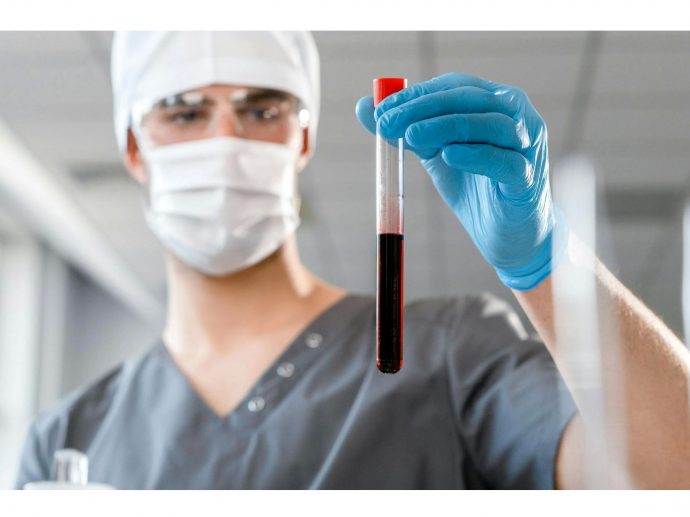Categories more
- Adventures (16)
- Arts / Collectables (14)
- Automotive (36)
- Aviation (10)
- Bath, Body, & Health (73)
- Children (6)
- Cigars / Spirits (30)
- Cuisine (16)
- Design/Architecture (17)
- Electronics (12)
- Entertainment (4)
- Event Planning (3)
- Fashion (42)
- Finance (8)
- Gifts / Misc (6)
- Home Decor (44)
- Jewelry (39)
- Pets (3)
- Philanthropy (1)
- Real Estate (12)
- Services (21)
- Sports / Golf (14)
- Vacation / Travel (60)
- Watches / Pens (14)
- Wines / Vines (24)
- Yachting / Boating (15)
Blood Tests For Early Detection Of Cancer: What You Should Know
Published
10/07/2024The detection of cancer early on is known for improving survival rates significantly. Additionally, it is blood tests that have become a promising tool in identifying cancer before symptoms even appear. These tests have the ability to detect biomarkers indicative of various cancers, enabling timely diagnosis and treatment.
The Importance of Early Detection in Cancer
Early detection is crucial because when cancer is found at an early stage, it’s usually more localized and easier to treat. Survival rates for early-stage cancers are typically higher, which also require less aggressive treatments. For example, early detection of cancers like breast, prostate, and colorectal cancer can result in a five-year survival rate of over 90%.
However, the challenge with early detection is that many cancers do not cause noticeable symptoms until they have progressed to more advanced stages. This is where blood tests play a pivotal role. By identifying biomarkers that indicate the presence of cancer, these tests have the potential to find cancer before symptoms develop, allowing for intervention.
Types of Blood Tests for Cancer Detection
There are several types of blood tests used in cancer detection, each serving a unique purpose. They are:
1. Complete Blood Count (CBC)
This is one of the most common. It measures the levels of different types of blood cells — red and white blood cells, and platelets, and can even at times detect cancerous changes. For example, certain types of leukemia or lymphoma may be indicated by abnormal levels or appearances of blood cells. While CBC is not definitive in any way, it does signal the need for further investigation.
2. Tumor Markers
Tumor marker tests measure specific proteins, antigens, or enzymes in the blood that are associated with certain cancers. For instance:
- Prostate-specific antigen (PSA): Elevated levels of PSA may indicate prostate cancer.
- CA-125: This marker is often elevated in ovarian cancer, though it can also rise due to non-cancerous conditions.
- Carcinoembryonic antigen (CEA): CEA can be elevated in colorectal, lung, and breast cancers.
- Alpha-fetoprotein (AFP): This marker is used to detect liver cancer and certain testicular cancers.
These markers are very useful, however, elevated levels do not indicate cancer since they can also rise due to other medical conditions. On the flip side, normal levels do not guarantee the absence of cancer, so these tests are typically used in conjunctions with other diagnostic tools.
3. Liquid Biopsy
A newer, non-invasive blood test that detects cancer by analyzing DNA shed by tumors into the bloodstream, also known as circulating tumor DNA (ctDNA). This test is promising because it can identify genetic mutations linked to different cancers, such as lung, breast, and colon cancer, sometimes even before tumors are detectable via imaging.
While they are still being refined, they are a powerful tool for monitoring cancer recurrence, assessing treatment efficacy, and potentially screening for multiple cancers at once in the future.
4. CancerSEEK
CancerSEEK is an experimental blood test designed to detect eight types of cancer, including ovarian, liver, stomach, and pancreatic cancers. It combines analysis of tumor DNA and protein markers. While still in clinical trials, it has shown promise in detecting cancers that are typically hard to diagnose at early stages.
Who Should Consider Blood Tests for Cancer Detection?
Not everyone needs routine blood tests for cancer detection, but certain groups may benefit from more proactive screening.
1. Individuals with a Family History of Cancer
If you have a family history of cancer, especially specific types like breast, ovarian, or colorectal cancer, regular screening blood tests are advisable. Genetic mutations like BRCA1 and BRCA2 can significantly increase the risk of certain cancers, and early detection is key for these high-risk individuals.
2. People Over the Age of 50
Many cancers, including prostate, colorectal, and pancreatic cancer, are more common as one ages. That is why people over 50 should discuss with their healthcare provider if a routine screening is needed.
3. Those with Known Risk Factors
Individuals with risk factors such as smoking, excessive alcohol use, or a history of chronic inflammatory diseases (e.g., Crohn’s disease or ulcerative colitis) are at higher risk for certain cancers. Regular blood tests, along with other screenings, may help detect cancer at an earlier stage.
4. Patients with Symptoms of Cancer
If you experience unexplained symptoms such as unexplained weight loss, persistent fatigue, or unusual lumps, your healthcare provider may order blood tests as part of a comprehensive diagnostic evaluation.
Conclusion
Blood tests for cancer detection are a valuable tool to not only fight against cancer, but also help in the potential earlier diagnosis of it. While no blood test can definitively diagnose cancer on its own, these tests can serve as an early warning system, prompting further investigation and allowing for timely treatment. If you have risk factors or a family history of cancer, it’s important to consult with your healthcare provider and even opt for blood tests at home with Healthcare on time to stay on top of your health, always.















